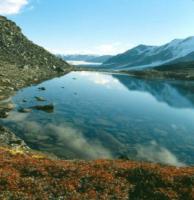Canadian researchers are concerned about artic ponds that are quickly evaporating and global warming is said to be the cause. These ponds, that date back thousands of years, are shrinking and even drying up at an accelerated rate which will have highly detrimental effects on the surrounding ecosystem. Larvae, which feed on the ponds, provide nutrients for animals in the area as well as mammals that rely on the pond for drinking water.
This is one of many indicators that man made greenhouse gas emissions are rapidly altering the landscape of the artic including thawing permafrost, melting sea ice and temperatures that according
Subscribe to our newsletter
Stay up to date with DeSmog news and alerts







